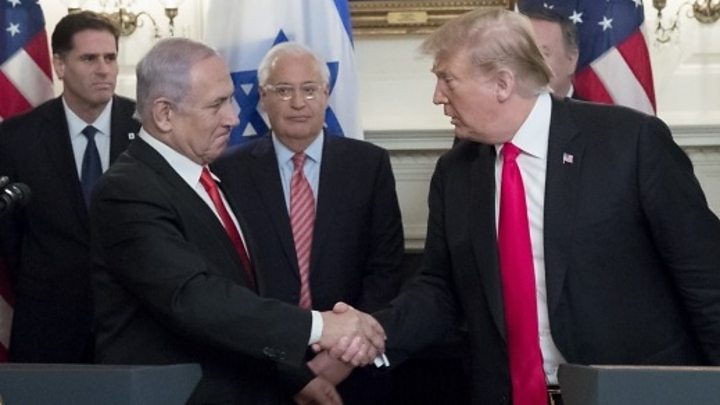Home » Middle East »
Israel-US: The end of a close relationship?
There was an element of the bizarre in the swearing-in ceremony of Israel’s Knesset (parliament) last week.
Only five months had passed since the last time newly elected members took the oath and, given continued political paralysis after another round of inconclusive elections, they may have to do it all over again soon.
Added to that, Israeli Prime Minister Benjamin Netanyahu’s grim, almost apocalyptic speech could not have been less festive. He warned of an imminent war with Iran and unprecedented security challenges, saying it was unlike any remembered since the days of the 1973 Yom Kippur War.
Granted, his words were seen by many commentators as familiar campaign rhetoric aimed at making the case for why he should continue to lead the country, even though he failed to win a majority in the September vote.
“Ladies and gents, I give you The Great Iranian Threat,” wrote Ma’ariv columnist Ben Caspit in a sardonic take-down of Mr Netanyahu’s “time-honoured security threat”.
But the speech also helped to fuel angst on the eve of Yom Kippur, the annual Jewish day of atonement during which, 46 years ago, Israel faced a surprise attack from a coalition of Arab armies.
Central to the angst is US President Donald Trump’s Middle East policy, and it’s accompanied by questions about the US leader’s close relationship with Benjamin Netanyahu.
The Israeli prime minister has made that relationship a key selling point of his re-election campaigns, claiming it has delivered in important ways.
Under his watch, the Trump administration has overturned longstanding US policy by recognising Israel’s sovereignty over the occupied Golan Heights and by moving the US embassy to Jerusalem.
In particular, Mr Netanyahu sees Mr Trump’s decision to abandon the Iran nuclear deal and get tough with the Islamic Republic as a crucial vindication of his own strategy to protect Israel from Tehran’s expanding reach in the region.
Anything short of unwavering support on either side is unusual, so President Trump’s ambivalent response to the September election sounded like a gong here. He noted that the vote had been close and emphasised that America’s special relationship was with the people of Israel, not a person.
“Trump hates losers” was the conclusion of numerous Israeli media – especially friends who cannot win despite his “strategic aid”, they said.
That may be overstating things, but it highlights Mr Netanyahu’s tenuous position after twice failing to form a government. In Israel’s complex coalition battles, he is trying to hold on to his job, which could give him more leverage to fight looming indictment on corruption charges.
Significantly, the prime minister’s signature Iran policy had already been shaken by Mr Trump’s turn to diplomacy with the Islamic Republic. And it was rocked by the president’s reluctance to flex US military muscle in response to an apparent Iranian attack on Saudi oil installations.
The Israelis have been pushing back more aggressively and more openly against Iran’s proxies in the region, determined to halt the proliferation of Iranian missiles near their border. But the Saudi attack rang new alarm bells.
If Iran could directly hit Saudi Arabia with cruise missiles, went the thinking, it could do the same to Israel.
And would Israelis be left to face that threat without the American security umbrella they thought they had?
“The mortal blow that the Iranians dealt to the Saudi oil production facilities by means of cruise missiles that were fired from Iran, an attack that was not met in any way with a response from the Trump administration, evinces the utter collapse of the security doctrine that has been advanced by Netanyahu, who based all of his decisions on ‘the friendliest president [to Israel] to ever reside in the White House’,” wrote Shimon Shiffer in Yedhioth Ahronoth.
The alarm has been compounded by Mr Trump’s decision to pull US troops out of north-eastern Syria to clear the way for a Turkish military operation, apparently abandoning America’s long-time Kurdish allies.
Again, that has raised concerns here about how far he is prepared to go to protect other allies: “Trump has become unreliable for Israel,” concludes Mr Shiffer.
In fact, there is no suggestion that the United States would reduce in any way its rock-solid support for Israel’s security.
But after nearly three years of walking in lock-step with the Trump administration, Israel is facing the reality of an unpredictable and transactional president who has deep reservations about using US military might, is afraid of getting involved in another Middle East conflict, and who, like Mr Netanyahu, is immersed in his own domestic political battles for survival.
Source: Read Full Article





